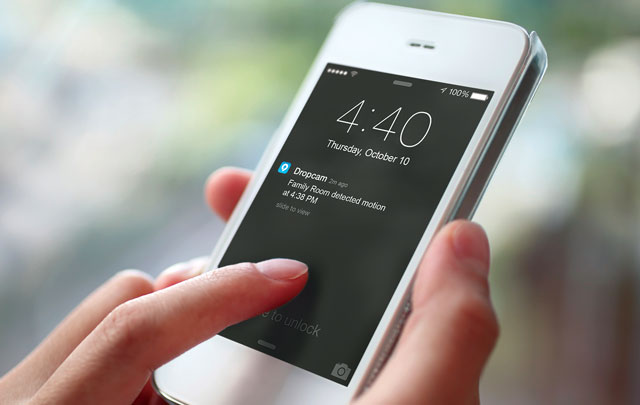 On Friday, Nest Labs — which was acquired by Google in January for US$3,2bn — said it was buying Dropcam, a San Francisco-based company specialising in home-monitoring cameras for US$555m.
On Friday, Nest Labs — which was acquired by Google in January for US$3,2bn — said it was buying Dropcam, a San Francisco-based company specialising in home-monitoring cameras for US$555m.
Things are hotting up in the smart home market and consumers may soon be exposed to hundreds of new hardware devices and apps that allow them to monitor and control their homes from just about anywhere.
Although the concept is not particularly new, there are major moves by technology companies, especially Apple and Google, to consolidate smart home technologies and make them more readily available.
Nest’s acquisition of Dropcam comes just weeks after Apple announced HomeKit, a toolkit that will allow iOS developers to create software to drive smart home devices from the iPhone.
“Eventually, the plan is for us to work together to reinvent products that will help shape the future of the conscious home,” said Nest founder Matt Rogers on the Dropcam deal. Dropcam not only gives Google a business that specialises in in-home cameras, it also provides access to Tabs — small Bluetooth sensors that extend monitoring functions to areas that Dropcam cameras might not see such as movement on doors and windows.
Apple senior vice-president Craig Federighi also spoke about “bring rationality” to the home automation market when he announced HomeKit at the company’s recent Worldwide Developers Conference. “There are a lot of home automated devices now, like garage doors and thermostats,” Federighi said. “The HomeKit API [application programming interface] will create a secure pairing structure so that developers can control individual devices in your home and group them together.”
Together, Apple and Google virtually control the smartphone market. If anyone can deliver on the vision of a smart and connected home, it’ll probably be one or both of them. But why the intense focus on it all of a sudden?
One could argue it is the next major untapped evolution of the technology industry, but it’s likely it has more to do with expanding the user base of the companies’ platforms and capturing a market that wants more control from their smartphones. And by control, there are a lot of things that smartphone users want to do with their devices.
It’s not difficult to understand why consumers haven’t embraced smart home technologies in a big way. The industry is fragmented, with virtually no platforms that allow devices to communicate with each other. Moreover, installing home automation devices today is a cumbersome task reserved for early adopters and geeks who don’t mind getting their hands dirty. For the most part, these devices are not just “set up and go”.

With Nest, Google wants to insert itself at the centre of the smart home. And Dropcam will extend the functionality of what users will be able to do with connected devices at home. In line with this, Google this week announced its “Works with Nest” ecosystem that will enable third-party manufacturers to develop gadgets that will communicate with Nest.
Fast-forward three to five years and the modern home will contain a new layer of Internet-controlled devices that will not only look after home automation, but also people’s safety and comfort. People will be able to employ IFTTT (If This Then That) to set conditional statements to control in-home systems. For example, they’ll be able to tell their smart home that when their alarm clock goes off in the morning, the kettle should switch on, the lighting should change and the living room window should open so the cat can go and do its business outside.
The same technology can also be used to alert an armed response company when motion is detected, or alert the fire brigade when smoke is detected.
What’s needed now is solid interoperability to allow third-party manufacturers to develop the necessary hardware. The initiatives by Apple and Google should go a long way in making the smart home a reality. — © 2014 NewsCentral Media
- Regardt van der Berg is a senior journalist at TechCentral. Find him on Twitter

